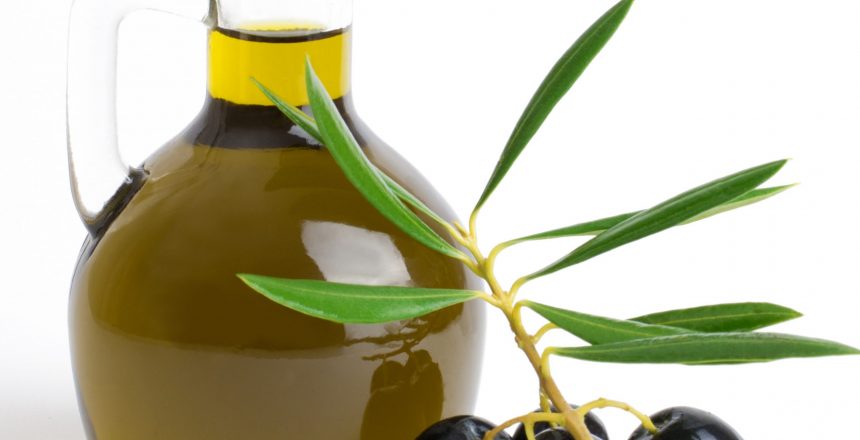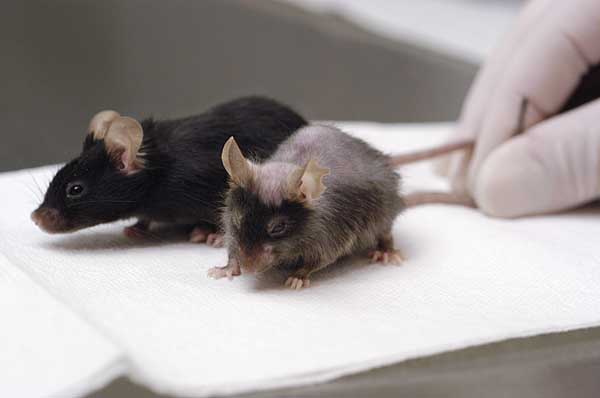Oils for cooking and dressing are common food items, yet some are unhealthy and definitely to be avoided, and others are healthy. Which oils and fats should you consume, and which should you avoid? Here’s how to choose a healthy cooking oil.
Why some oils are unhealthy
I’ve written quite a bit on this site about why you should avoid vegetable oils, which are better known as industrial seed oils. It’s easy to see why they use the term “vegetable” since it makes them seem healthy, when in fact they are not. It’s PR.
Vegetable Oils Cause Insulin Resistance
Do Vegetable Oils Raise Heart Disease Risk?
Vegetable Oils Promote Male Infertility
Vegetable Oils Are Dangerous to Health
I can’t think of any reason you would want to consume vegetable (seed) oils.
Problem is, they’re added to almost all processed and fast foods, so avoiding them entails eating minimally processed food that’s as close to natural as possible.
The most important reason why these oils are unhealthy is because of very high amounts of omega-6 fatty acids, which are harmful both in themselves, and because they lead to a very unbalanced omega-6/3 ratio in body tissues. (See articles above for more detail.)
Some oils may contain other chemicals that cause ill health. Canola oil, for example.
In all cases, the unhealthy oils are industrial seed oils, aka vegetable oils.
Which oils you should avoid
What these oils have in common is that they’re made by an industrial process from seeds that normally don’t yield much oil. Hence they need a way to process massive amounts to get that oil.
Ever wonder how they get oil from corn? There’s not a lot there to begin with.
Here’s a video on how they make canola oil. Doesn’t look too appealing if you ask me.
In general, then, avoid the following oils:
- corn
- safflower
- sunflower
- soybean (the most common processed food additive)
- peanut – something of an exception since peanuts have a lot of oil, but it’s high in omega-6 fats
- nut oils
- cottonseed
- canola or rapeseed
- mustard seed (widely consumed in India)
And I shouldn’t need to add, but I will
- margarine
- shortening.
Wikipedia lists an astounding number of vegetable (seed) oils, so the above isn’t an inclusive list.
If an oil wan’t used before the late 19th or early 20th century, then a good rule of thumb is to avoid it. Fats and oils that our ancestors used are, in general, healthy.
Healthy fats and oils
Fats and oils that come from sources that are not seeds or nuts are generally healthy. “Generally”, because as noted there are many different types of fats and oils, so I’ll only discuss the most common.
These are healthy for cooking and dressing food:
- olive oil
- lard
- beef tallow
- butter
- ghee
- coconut oil
- avocado oil
- palm oil
These fats and oils are healthy because they contain much lower levels of omega-6 fatty acids. In the case of animal fats, very little to none. (Lard has some.) They’re composed mainly of saturated and mono-unsaturated fat.
Olive oil has of course been consumed for thousands of years. There are a couple of concerns about olive oil.
The main problem with olive oil is that much of it, maybe most of it, may not really be olive oil, but adulterated with soybean or other seed oils. There are a few ways to discover whether the olive oil you buy is pure or adulterated (which you can find online), but probably the most important is to get it from a reputable source. Unfortunately, Italy doesn’t appear to be a reputable source, and even big, well-known companies have been caught red-handed adulterating their olive oil.
Olive oil from other countries appears to have much better odds of being pure. Countries like Greece, Spain, Argentina, and even the U.S.A (California). But that’s not a guarantee.
The second concern with olive oil is in cooking. It has a lower smoke point than some oils, and high heat may cause it to break down. The concern that cooking with olive oil is in some way unhealthy appears to be lacking in evidence. Nevertheless, some fats or oils may make better choices for cooking.
Lard and beef tallow may be better for cooking at high heat, since they’re largely composed of saturated and mono-unsaturated fat. Leftover animal fat may also be suitable here. One concern about lard or tallow is that some of it in supermarkets may be hydrogenated, so definitely avoid those.
Butter is perfectly healthy but also suffers from the high heat angle. Works great for cooking eggs though. Ghee is clarified butter and more suitable for higher heat. Coconut oil also.
Avocado oil may be in the same league as olive oil here for cooking.
Lastly, palm oil. Palm oil was demonized for years due to its saturated fat content. Now that we know that saturated fat doesn’t cause heart disease, that concern appears moot. On the other hand, its saturated fat content makes it good for cooking. When I lived in West Africa, they cooked all the food in palm oil and it tasted great, although it left an orange residue on the plate. Palm oil may have a few other issues however, so unless you live in West Africa and have nothing else to cook with, other choices may be better.
Why cook at high heat?
Possibly a more fundamental question when it comes to fats, oils, and cooking, is: why cook at high heat? What are you using these fats and oils for?
Now, I’m not much of a cook. Happily, someone else cooks for me most of the time. If I had to cook for myself, I’d be eating Vince Gironda style most of the time.
Since in my house we eat whole, unprocessed and mostly low-carbohydrate food, there’s not a lot of need for frying or cooking at high heat. Eggs get cooked in butter, but meat gets cooked in its own fat. But we’re not frying up batches of potatoes. Chicken, which we hardly eat anymore due to its high omega-6 content, gets cooked in the oven or broiler. Likewise, pork or tri-tip is cooked in the oven. You get the idea.
My point is, if you need some kind of oil that needs to stand up to high heat, ask yourself what you’re cooking and do you really need to eat it. (Admittedly since I’m not a cook and have little imagination as well, there may be foods I’m missing here, so feel free to let me know.)
Conclusion: Industrial seed oils
Vegetable oil is a euphemism, and these oils are better called industrial seed oils, since they’re made from seeds via a modern, industrial process.
Seed oils form one leg of the processed food trifecta, which also includes sugar and refined carbohydrates.
Seed oils illustrate a rule of thumb about healthy eating: if your great grandmother (or her great grandmother) wouldn’t recognize it as food, best avoid it.
Other oils and fats, such as olive oil and animal fats, are healthy for cooking and dressing.
The go-to fats and oils in my house are butter, olive oil, and coconut.














28 Comments
Just say never heat oils. It will always encourage oxidation. Just don’t. You have to cook meat, and it will have some fat in it, but you want to boil it for a minimum of time. Pour on evoo only after you have cooked whatever you want to cook, right before serving.
I think I agree with that, thing is, everyone wants to do it.
Great article as always, Mangan.
I periodically check the internet for resources on how to get unadulterated olive oil, but it seems we always get linked back to the same one or two articles/studies that are getting pretty outdated now. It seems there is a strong need for some institution or enterprising individual to do an updated survey of just what’s inside those bottles of “olive” oil. I think Consumer Reports does studies like this from time to time (I remember an article they had that showed how many “decaf” coffees are nothing of the sort). I hope we eventually get more data on this!
Meantime, I buy Spanish olive oil or the Lucini Italian brand, and rely heavily on Kerrygold Butter for most things.
Keep up the awesome work!
Good article. We use quite a bit of beef tallow and pork lard in our house, but we render it ourselves from pasture-raised meat bought from a local farmer. Virtually all of the lard I’ve seen at the grocery store is “fully hydrogenated” (presumably to increase shelf life), and I wouldn’t touch that garbage. We are occasionally able to get butter from another local farmer (they churn it themselves), and that stuff is fantastic………deep orange color, full of flavor. The butter I get from the store is not nearly as good. As for industrial seed oils/margarine, I wouldn’t feed them to my worst enemy. There’s no doubt in my mind that consumption of industrial seed oils contributes to heart disease.
Macadamia nut oil has less omega 6 PUFA’s than both olive / avocado oil. Why are you not recommending it ?
As noted, there are a huge number of different types of oils, and only the most common are discussed in the article. How many people use macadamia oil?
Tree nut oils are quite expensive in general.
They are best used for making salad dressing.
Nice to read in the Mercola link that Australia is the preferred country for olive oil… A couple of years ago I helped an Italian woman friend with her grocery shopping. And she got Australian organic olive oil. I asked her why not Italian ? She gave me scowl and said that Italian olive ol was all made & controlled by the mafia and always adulterated !
Fully hydrogenated (full hydrogenation does not produce transfats, it’s partial hydrogenation that does that) cottonseed oil may be an exception to the industrial seed oil rule. It’s 93.6% saturated fat, more than any other oil. I’ve never heard an explanation of why refining and bleaching are supposed to be bad. That said it’s not something I would buy as it’s not Lindy tested and we have other good alternatives.
With respect to olive oil I purchase olive oil from the California Olive Ranch company. Adulteration seems like a lower risk with an American company, and their products have received praise for their purity and quality. The prices are also reasonable. Greek olive oil is also a good option–Costco is switching to Greece for Kirkland Signature owing to the adulteration issue in Italy.
Great NYT article with wonderful infographics on the matter of olive oil: https://www.nytimes.com/interactive/2014/01/24/opinion/food-chains-extra-virgin-suicide.html
This site is no longer updated but is useful: https://www.extravirginity.com
The reason is the Maillard Effect (browning). This is especially important with red meat. To get a great crust on steak, you must sear it at the highest possible heat. Steakhouses for instance typically have specially made gas-fired broilers which reach 1,300 F. We don’t have this at home, so you use a cast iron pan on the stove (or if the whether is nice, use a Weber chimney for the “afterburner” method).
Cook your steak at a low temperature (250 F or less) in the oven until it gets to 100-110 F, then throw it in a cast iron pan that has been on the maximum heat burner for at least five minutes if not more. Only 45 seconds per side are needed.
Here avocado oil comes in handy because it has the highest smoke point of any cooking oil. It will still smoke, but it will smoke less. Ghee is number two if I remember correctly.
Once your steaks are done rub them all over with herb butter and get ready for some good eating.
Outside of red meat high temperatures are important when cooking fish on the stove. If you don’t have a high temperature in the pan when you place the fish in it, the fish will stick. You can however lower the temperature afterwards (and should).
Personally I employ butter, ghee, extra virgin olive oil, and avocado oil. I don’t bother with anything else as I like flavor (avocado oil lacks flavor as well but its smoke point is unbeatable).
https://www.cookingforengineers.com/article/50/Smoke-Points-of-Various-Fats
Do you have an opinion on using cold pressed coconut oil vs. regular coconut oil like Lou Ann? The problem with the cold pressed is it tastes like coconut which depending on what your cooking might not be good.
No, I’m afraid I don’t know enough about cold pressing to have an opinion. Whatever it is, I know that in the case of seed oils, it’s not enough to overcome the inherent unhealthiness of the oil, but in the case of coconut oil, I don’t know.
I use rapeseed oil for making vinaigrette – 2:1 olive:rapeseed is the ratio – I guess I could eliminate that and just use olive oil.
https://www.theguardian.com/science/2018/apr/30/the-five-habits-that-can-add-more-than-a-decade-to-your-life
“The five healthy habits were defined as not smoking; having a body mass index between 18.5 and 25; taking at least 30 minutes of moderate exercise a day, having no more than one 150ml glass of wine a day for women, or two for men; and having a diet rich in items such as fruit, vegetables and whole grains and low in red meat, saturated fats and sugar.”
Nice article. Here is a site that has some good information about olive oils: https://extravirginity.com (I have no association with this site.) Although it appears not to have been updated in a while, there’s still good information about picking the right olive oils. He also discusses the adulteration of Italian olive oils in particular, in the post titled “The Strange Case of Italian Olive Oil”, which is here: https://extravirginity.com/2016/01/strange-case-italian-olive-oil
Hey PD, thought you’d like this. I’m ~10% body fat, 34 years old, lift heavy 2-3x week, HFLC, and donate blood every few months. Got a lipid panel done, now the doc is beginning the drugs talk. 264 cholesterol total, 54 HDL, 200 LDL, 48 triglycerides. That’s a .89 tri/HDL ratio, 4.9 HDL/total ratio.
Doc’s suggestions:
-minimize red meat, eggs, and poultry
-eliminate butter
-Enjoy a diet rich in vegetables, beans and fiber. Good choices include fruits, vegetables, whole grains (like oatmeal), dried beans and peas, nuts and seeds, SOY PRODUCTS (like tofu), and fat-free or low-fat dairy products
-consider taking a CHOLESTEROL LOWERING MEDICINE in the future
This is exactly the path my father took, he obsessively kept his lipids super low his whole life and it earned him a quadruple bypass in his early 50s. I’ll take meat and butter over soy and statins any day of the week.
Hay Matt, thanks for the comment. Yeah, it’s terrible. My girlfriend, under 20 BMI, lifts twice a week, eats like we do, LCHF (or HFLC), doctor is pestering her about lipids, even though her trig/HDL is great and she’s obviously in great shape. In that position, one just has to know one’s facts and stand your ground.
I solve that problem myself by not going to the doctor or getting lipid panels.
Matt, that medical quack is an incompetent & ignorant idiot and not someone who should be paid for at all. Find someone better….
Why is then the palm oil banned in Europe?
Me me me! Just used it last night. Perhaps it’s more available in the country I live as we grow a lot of macadamia nuts compared to the US.
Me too, love macadamia nut oil. I buy it by the gallon. Makes GREAT mayonnaise!
P.D,
Not sure if you’ve seen these already but the graphs are pretty interesting in terms of countries and consumption, US obviously being high up near the top.
World Vegetable Oil Consumption Expands and Diversifies
https://ageconsearch.umn.edu/record/266114/files/FoodReview-115.pdf
Global Edible Vegetable Oil Market Trends
https://biomedres.us/pdfs/BJSTR.MS.ID.000680.pdf
Thanks for the great articles brother. I share them with all of my clients and people are seeing incredible change from dropping seeds oils from their diet.
Thanks, Matt, I hadn’t seen those. I’m happy my articles are helping you and your clients.
https://www.nationalgeographic.com/what-the-world-eats/
Interesting site where you can click on vegetable oil usage( as well as meat etc) on each graph and it will show you each country. Then using the slide at the bottom you can see the change from 1960 til 2011. Granted they don’t specify which oils but the U.S has doubled in usage..
Also I know you are familiar with @tednaiman so assuming you saw this but he posted this gem..Hong Kong leads in longevity. Highest meat consumption and low seed oils
https://truther10.blogspot.com/2016/06/eat-more-red-meat-fish-better-your.html
Thanks for those, Matt, I hadn’t seen them. Love the one about HK.
One thing I’ve noticed is a lot of “organic” things now come with “expeller extracted” things like expeller extracted canola oil for mayo or what not.
Is this supposed to be, you know, at least not chemically extracted and therefore better in some way?
I believe it may not be chemically extracted, but it’s all then chemically bleached, deodorized, de-acidified, etc. Plus it all has high amounts of linoleic acid (omega-6). Not fit for human or animal consumption in my view.
How about palm kernel oil? Very common. Apparently it’s related to palm and coconut oil but I’m suspicious of it.
PD thanks for the article.
Do you know much about rice bran oil as an alternative? I have seen it touted as a healthy alternative but cannot find much on it other than from the manufacturers or paid bloggers.
I understand it is not a seed oil, but that does not necessarily make it good. I also have read some manufacturers use a chemical solvent, but that could be wrong.
I appreciate any insights you have.
Regarding your comments on good quality olive oil, I recommend Australia. Many manufacturers were established by post-war Italian/Greek/Lebanese farmers are they keep true to form by cold pressing with minimal bullshit – certain regions also have a suitable quality for growing olives so the quality and taste is very good. Labeling laws are also far more stringent.
Thanks
Thanks for the article PD.
Do you have an opinion on mustard oil? It’s cold pressed from mustard seeds and not chemically treated in any way.